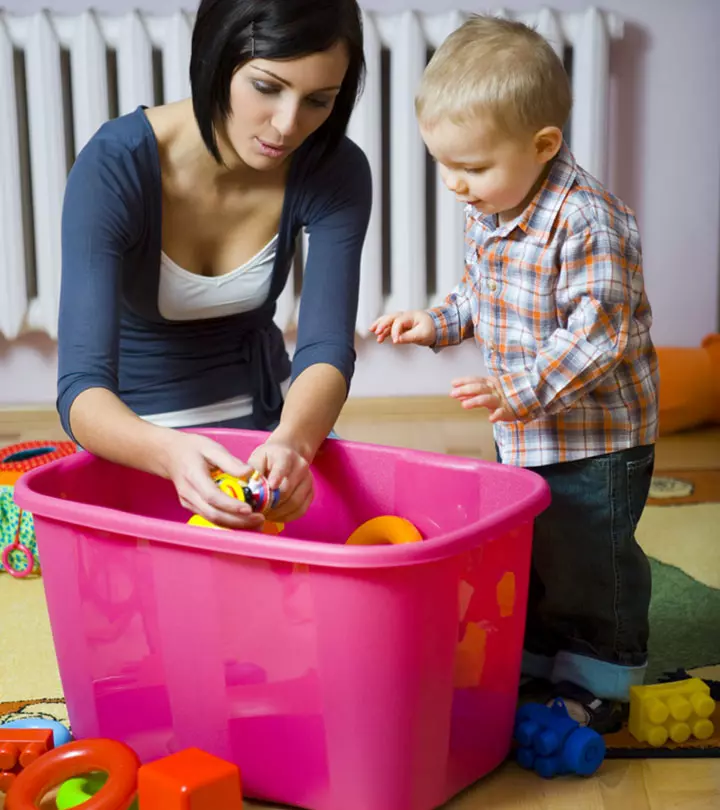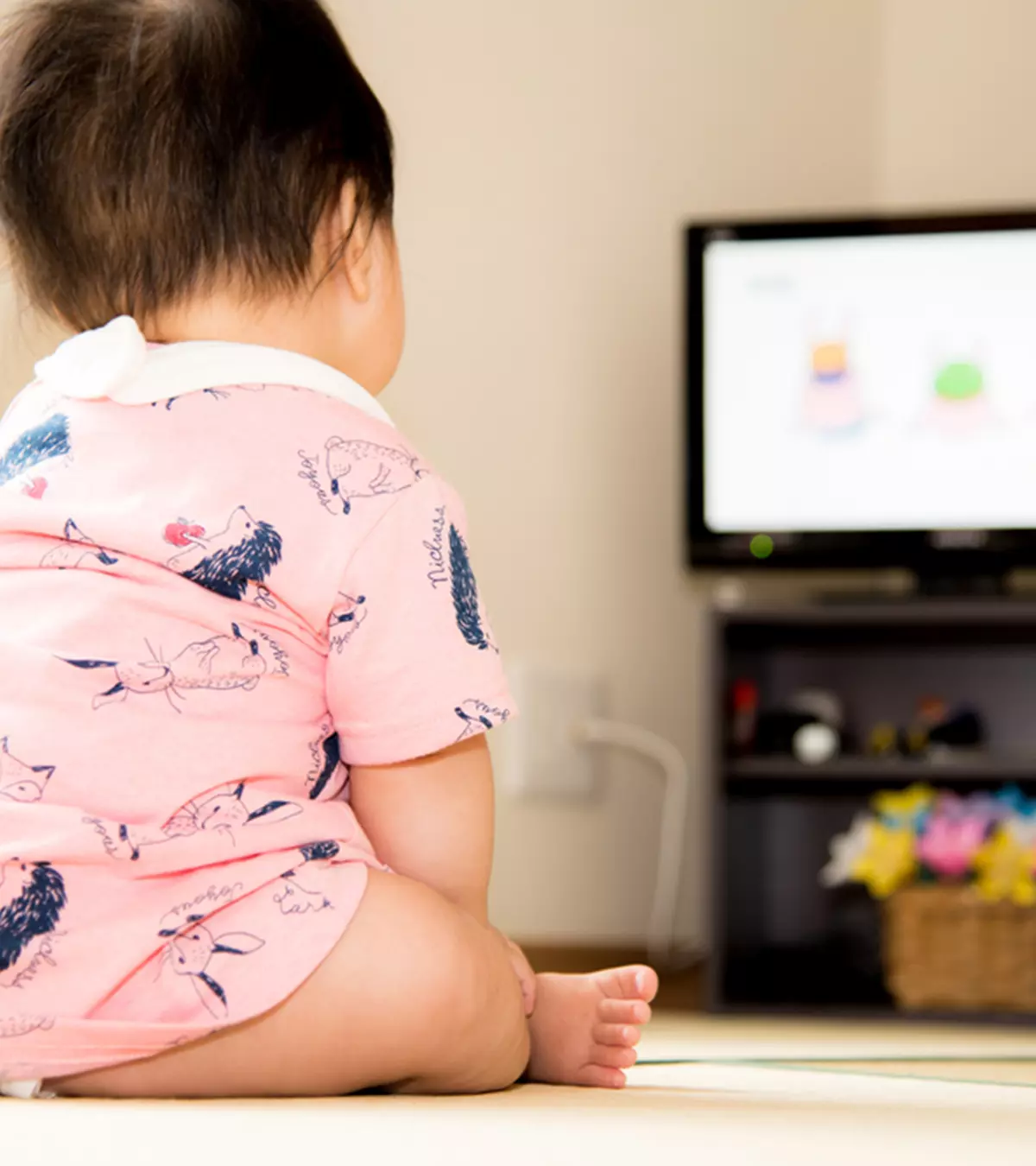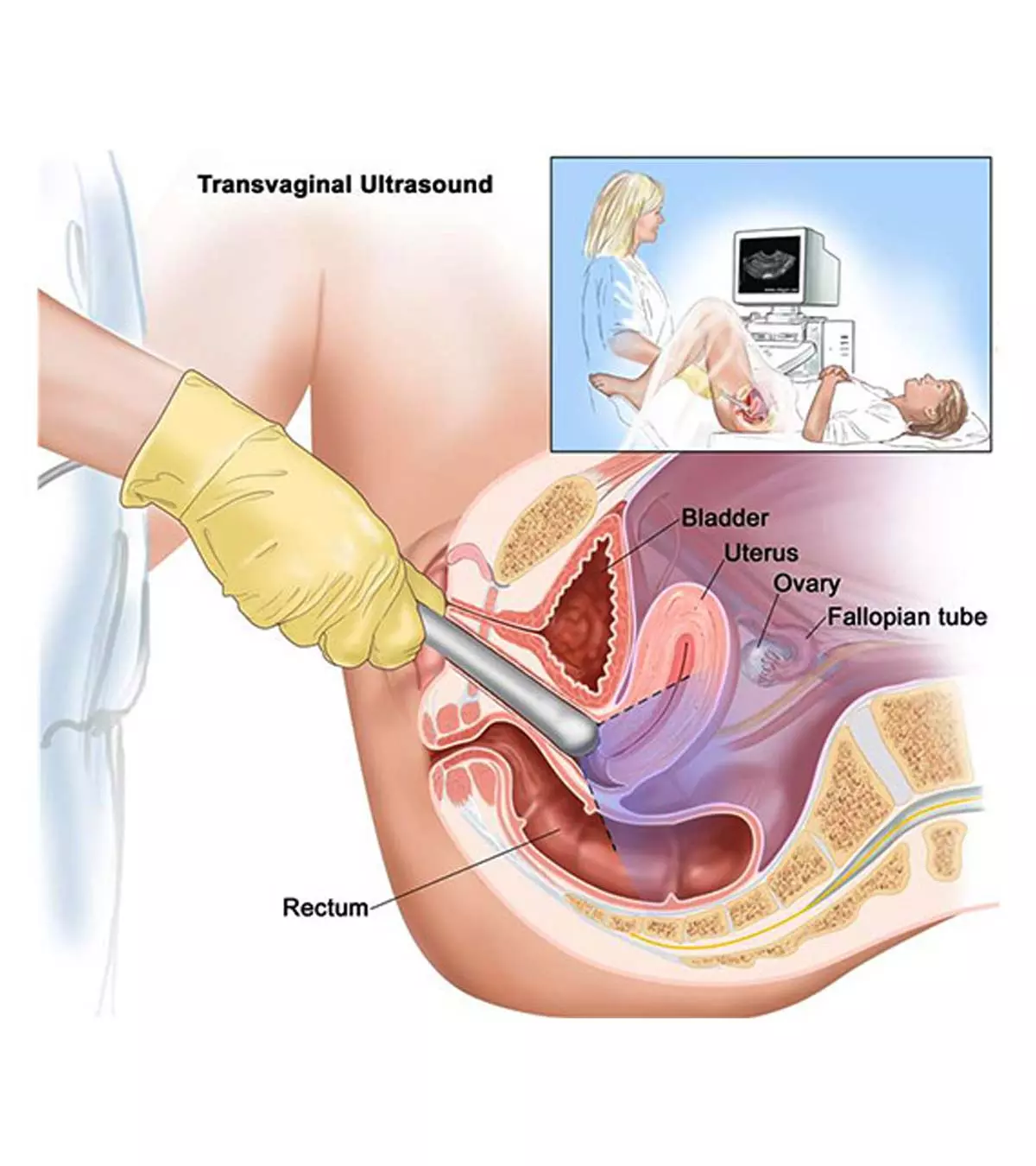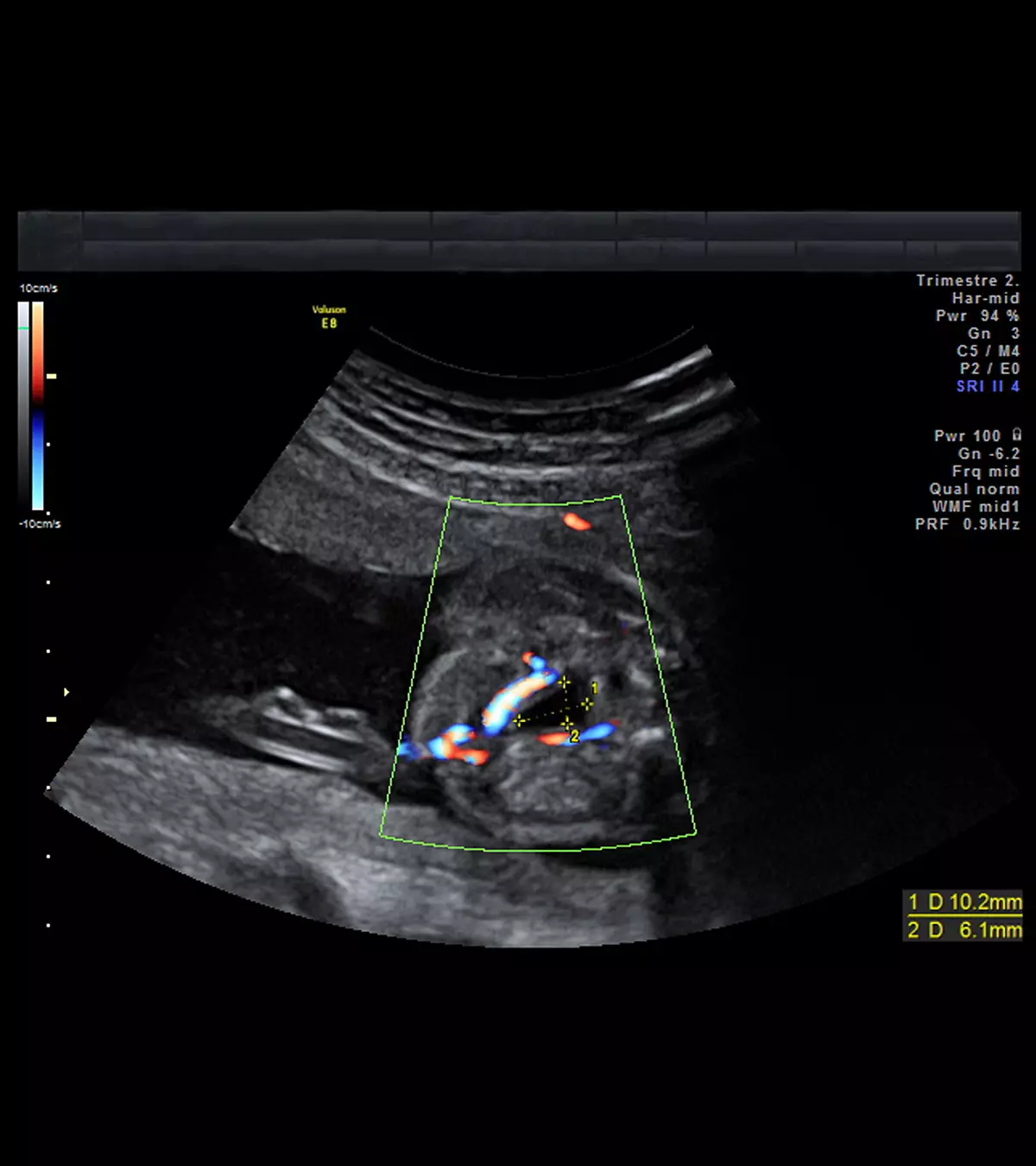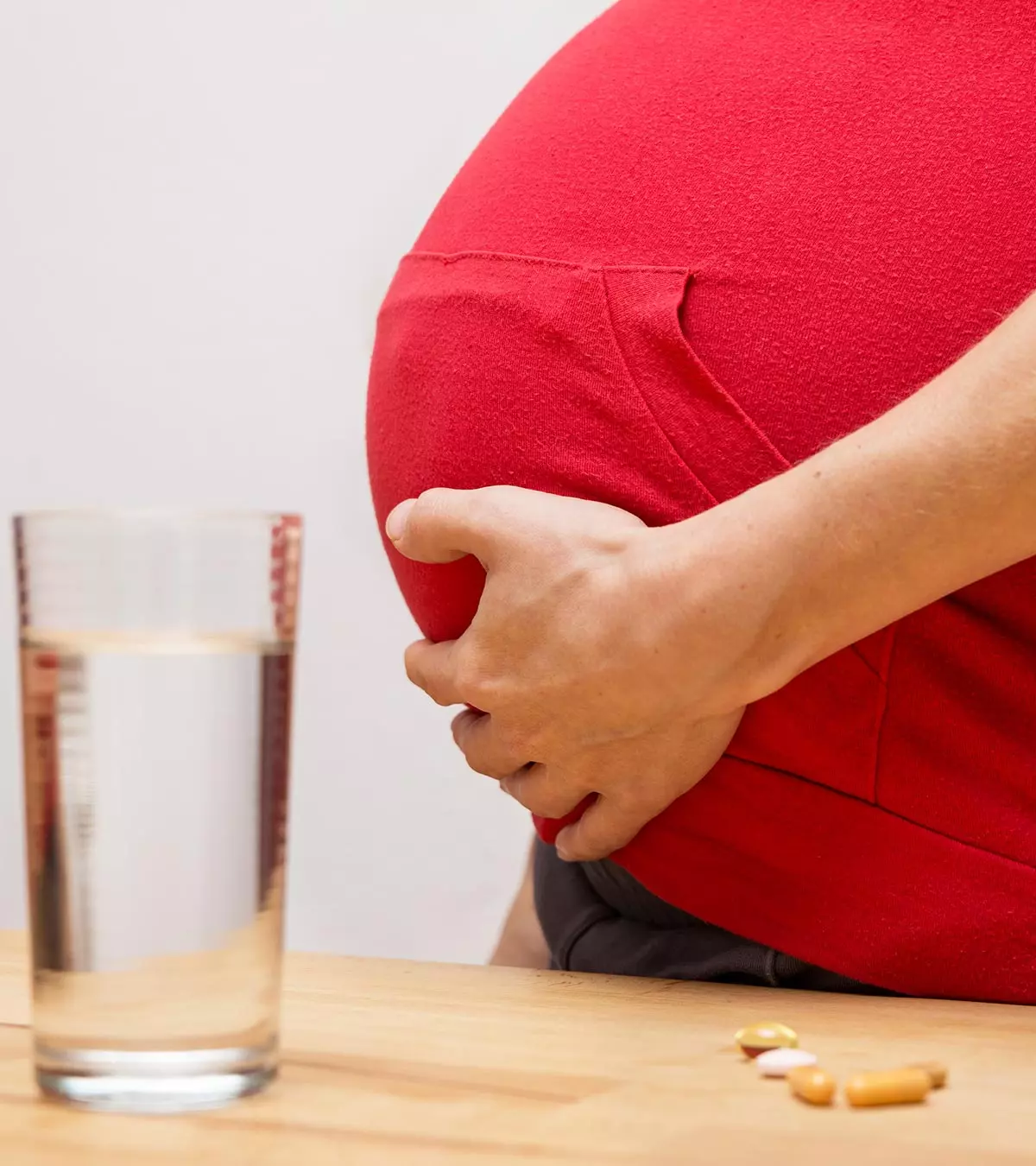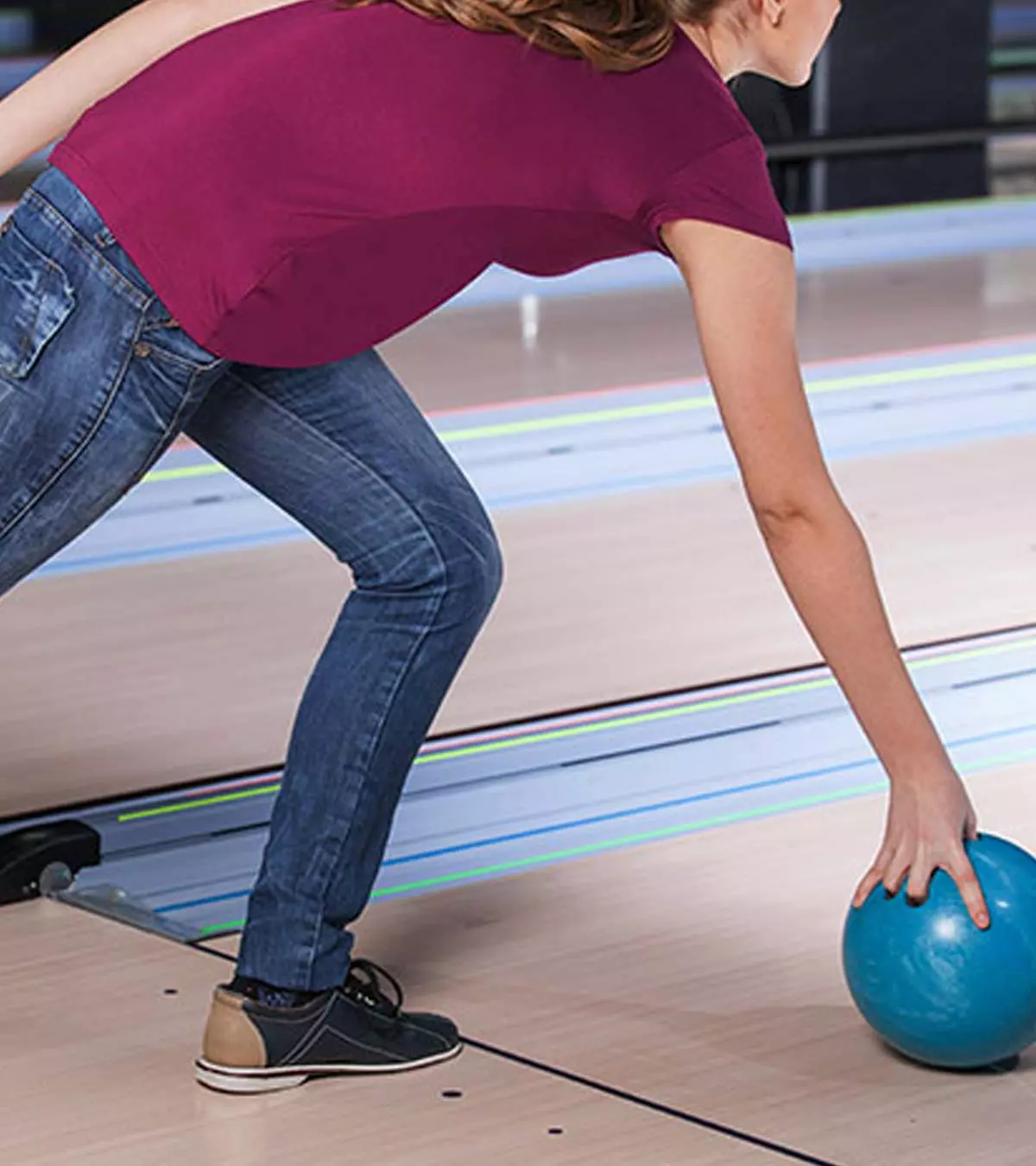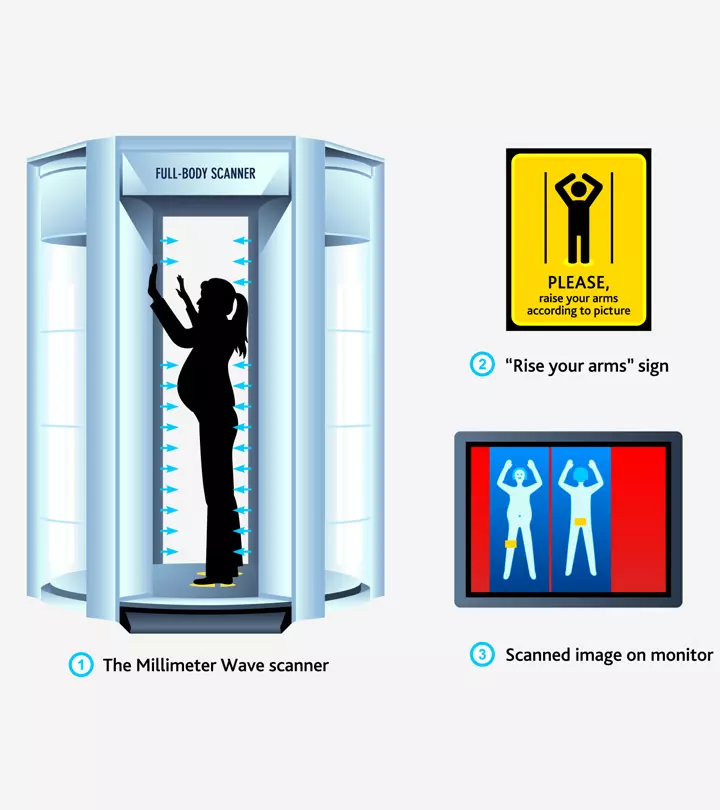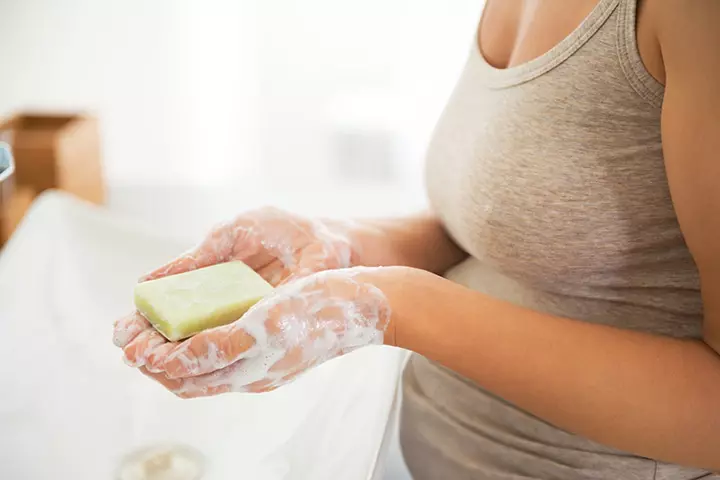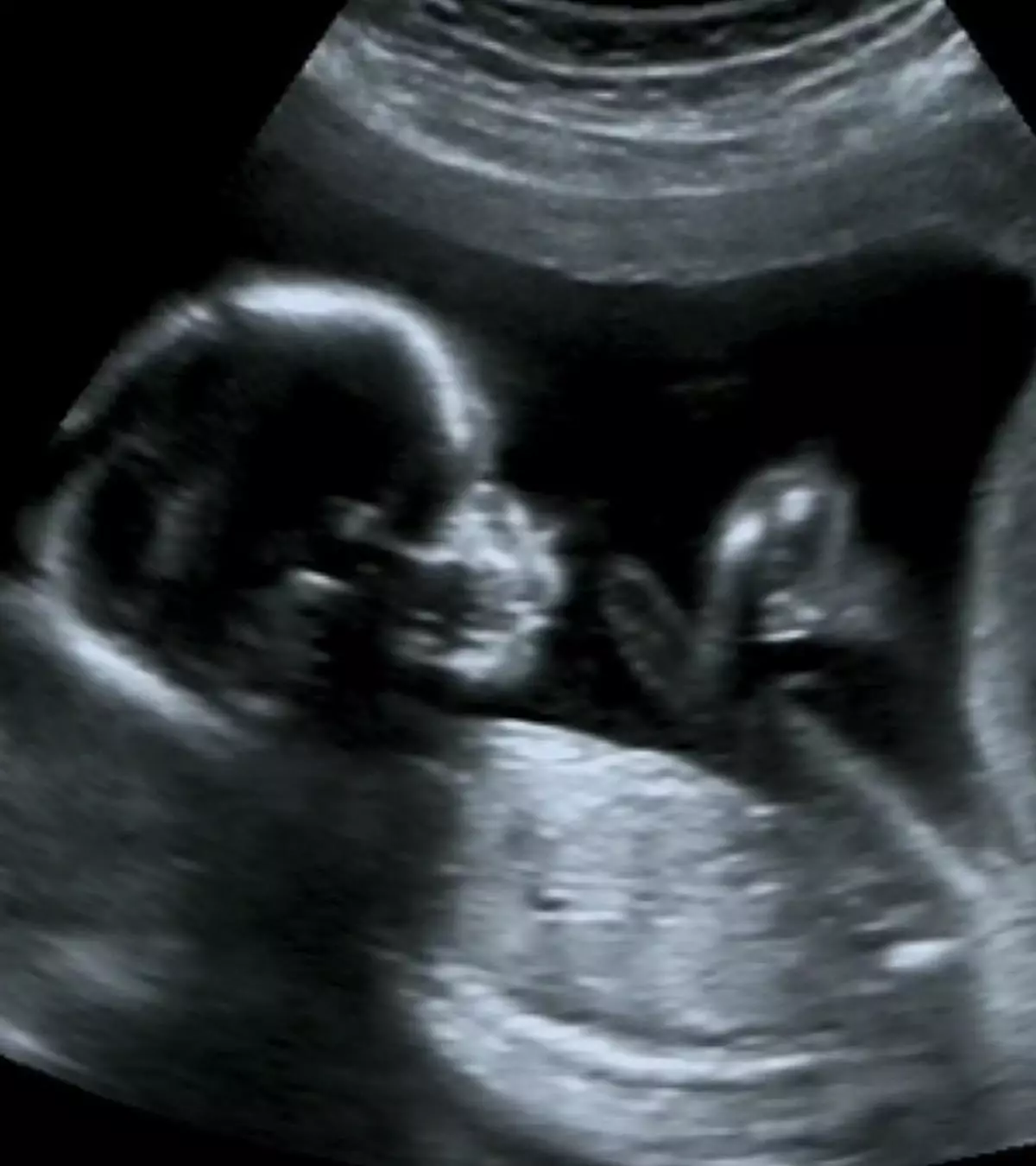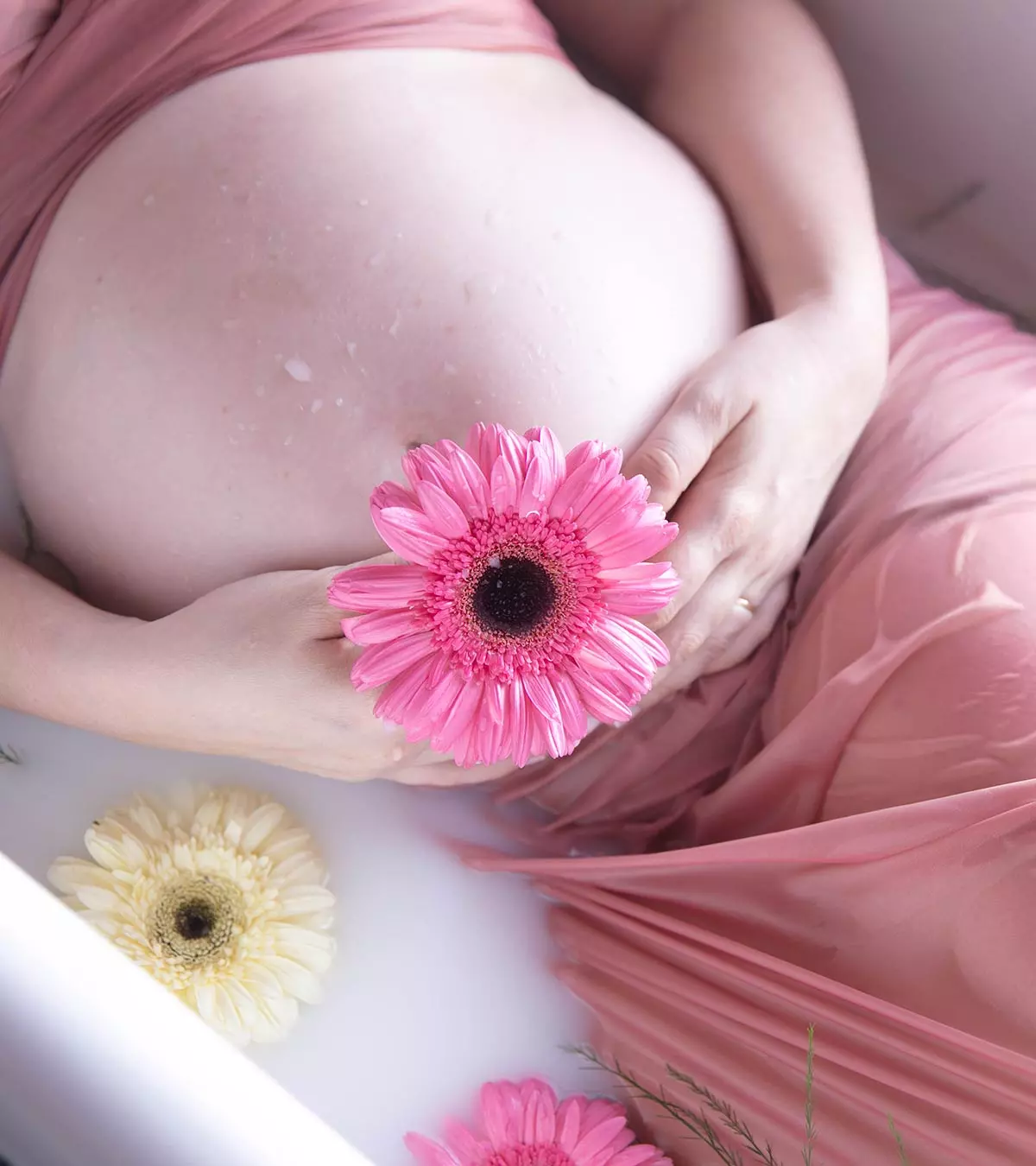
Pregnant women may often experience body aches. To curb and manage these symptoms, women may consider indulging in a hot shower or soak themselves in a warm water tub. However, pregnant women may wonder if it is safe to use hot tubs in pregnancy. Read this post to learn about the safety, benefits, and side effects of hot water bathing in pregnancy.
Key Pointers
- Hot water baths are safe when the water temperature ranges from 92°F to 98°F (tepid to warm).
- Women with ruptured membranes or vaginal bleeding should avoid hot water baths.
- Hot water baths can help soothe tired muscles, reduce swelling, relieve pain, aid in sleep, and improve amniotic fluid levels during pregnancy.
- Pregnant women should be cautious of hot water baths as they may raise core body temperature, which can pose risks to the fetus’ neural tube development, dehydration, and unconsciousness.
- Warm baths can be a relaxing option to induce labor, but it is important to test the water temperature to prevent overheating.
Is It Safe To Take A Hot Water Bath During Pregnancy?
It is safe to take a hot water bath during pregnancy if the water is not too hot. Generally, gynecology and obstetric experts recommend that pregnant women avoid hot water as it elevates body temperature, which could be risky for the baby.
Also, hot water baths are not safe when you have vaginal bleeding or ruptured membranes. To prevent burns on the skin, exercise caution and check the water temperature with your wrist or forearm to test the water and make sure it’s at a comfortable temperature for you.
Also, if the water is too hot, it can increase your body temperature to above normal.
What Temperature Should The Bath Water Be For A Pregnant Woman?
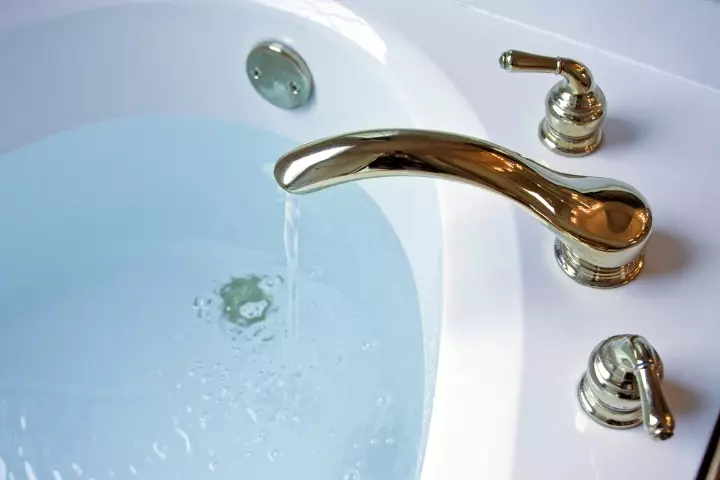
The water should ideally be between 92°F/ 33°C and 98°F/ 36.3°C, i.e., warm or tepid.
Also, your body temperature should not go above 102.2°F or 38.9°C when you are in a bathtub filled with hot water (1). If the temperature crosses this limit, it can lead to the following complications for you and your baby.
- Drop in blood pressure levels, which can deprive oxygen supply to the fetus
- Weakness and dizziness
- Birth defects in the first trimester
So, it is best to avoid hot tubs, saunas, Jacuzzi, and steam baths that can increase your body temperature quickly, during pregnancy.
What Are The Side Effects Of A Hot Water Bath During Pregnancy?
A hot bath can increase your core body temperature, which can be dangerous for the baby as well.
- In the first trimester, a hot water bath can affect the brain and spinal cord development of the fetus, leading to neural tube defects such as spina bifida (2). Spina bifida, a birth defect, causes neurological function deficits. Research from the Massachusetts College of Pharmacy and Health Sciences revealed that spina bifida affected an estimated 161,912 live births in the US between 1940 and 2020.
 Research says
Research says- It may also affect maternal health, causing dehydration and unconsciousness (3).

Is it safe to use saunas, Jacuzzis and hot tubs in pregnancy?
No, there are several pregnancy-related contraindications; therefore, it is better to avoid sauna or Jacuzzi as they are likely to increase the risks of dehydration, fainting, and overheating in pregnancy.
- Women usually tend to feel warmer during pregnancy due to hormone changes and increased blood circulation. Additional rise in the temperature when in a sauna or Jacuzzi can up the temperature to a risky level.
- Hot jets from the Jacuzzi will alter the blood circulation, and the pressure can strain your baby.
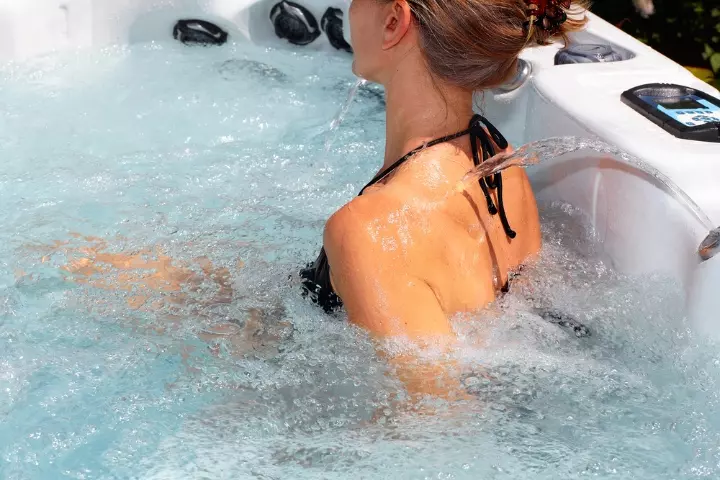
- Steam from the sauna increases your core temperature and may increase the risk of fetal heart anomalies (4).
- Extremely hot water in the bath could lead to exhaustion, dizziness, and dehydration.
- The high temperatures in the tub can shock the body system and lead to a miscarriage or premature labor.
 Quick fact
Quick factCan A Hot Bath Cause A Miscarriage During Early Pregnancy?
A hot water bath during early pregnancy could result in a miscarriage, and the risk is higher when you have frequent hot water baths with very hot water
(5).
However, further studies are required to find a concrete association between the duration and frequency of showering in the early stages of pregnancy and miscarriage or congenital disabilities in the baby.
Meanwhile, a bath in reasonably hot water can be beneficial to you during pregnancy.
Benefits Of Hot Water Bath During Pregnancy

A warm water bath is a form of hydrotherapy that can promote physical and mental relaxation (6) and offers the following benefits.
- Soothes tired muscles and joints and relaxes the tense muscles that are stressed due to weight gain during pregnancy.
- Eases premature contractions, and reduces swelling (edema) around the legs, ankles, and feet.
- Relieves pain, and hence several mothers use it for pain and stress relief during labor.
- A warm bath before bedtime induces sound sleep and helps fight pregnancy insomnia.
- Warm baths, along with essential oils, can serve as a relaxing therapy for the body and nurture the skin, thereby providing relief from cramps.
- Soaking in a tub of warm water mixed with rock salt helps relax the muscles and improves the amniotic fluid levels (7).
Can You Use A Hot Tub When Pregnant?
No. Most experts and obstetricians do not recommend the use of hot tubs during pregnancy as it can increase the core body temperature and affect fetal development. In the first trimester, it might lead to neural tube defects and cause dehydration in mothers (3) (8).
Hot Tubs vs. Hot Baths: What Is Safe During Pregnancy?
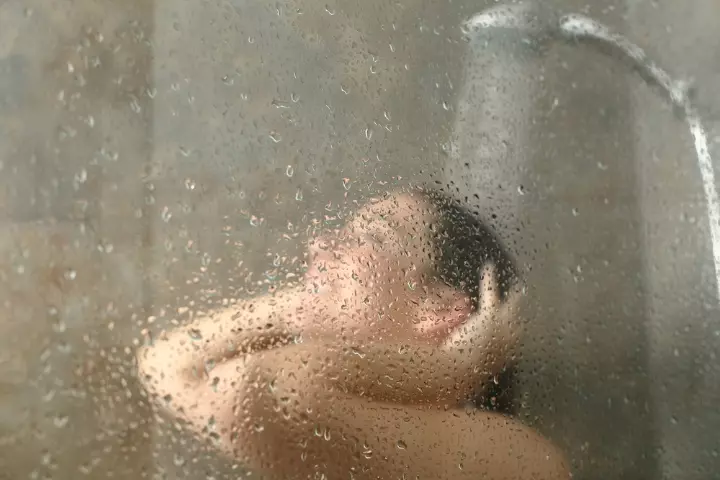
A hot bath is safer than a hot tub, as the water in the bath cools down quickly whereas the water temperature remains hot in a tub. Also, in a hot bath, your upper body is out of the water as opposed to a hot tub where you submerge entirely.
That said, a hot bath will also pose risks if the water is too hot and the duration of the bath is too long. Try to monitor and maintain a safe body temperature to avoid the risks of a hot bath.
Is It Safe To Try A Hot Bath To Induce Labor?
A warm bath is relaxing and a better option to induce labor, sometimes also recommended by a midwife (9). But if the water is too hot, your baby will feel hotter and stressed inside.
So, test the water by putting your forearm or elbow in it. If your skin becomes inflamed or starts to sweat, the water is probably very hot.
Frequently Asked Questions
1. What happens if a pregnant woman uses a hot tub?
Hormonal changes and increased blood supply can cause pregnant women to feel warmer than usual. Since the body cannot lose heat effectively in hot tubs by sweating, the core temperature increasus, hot tubs can cause overheating, dehydration, and fainting in pregnant women. A significant rise in body temperature may also harm fetal development (1).
2. When should you avoid using a hot tub?
Hot tub use is not recommended for women who are pregnant or actively trying to conceive. You may use it for short periods at a low water temperature if you want to use hot tubs during pregnancy, preferably after the first trimester (8).
3. Is it safe to use a public hot tub while pregnant?
Using a public hot tub while pregnant is not recommended due to the increased risk of exposure to harmful microorganisms and chemicals (10). Public hot tubs may not be properly maintained, increasing the risk of infections that can harm both the mother and the unborn baby.
4. Should I limit the time spent in a hot tub while pregnant?
It is recommended that pregnant women limit their time spent in a hot tub to avoid adverse outcomes. Experts recommend that pregnant women must not spend more than ten minutes at a time in a hot tub (11).
5. Should I avoid using a hot tub during the third trimester of pregnancy?
Using hot tubs in the third trimester is generally considered safe. The risks associated with using hot tubs are higher in the first trimester when compared to the third trimester (8).
You may use warm or tepid water for a bath during pregnancy. If you enjoy indulging in hot showers to soothe yourself and for your mental wellness, you may want to continue it during your prenatal phase too. You could do so, provided your water temperature is not too high. Note that it is better you avoid using hot tubs in pregnancy to safeguard yourself and your unborn from the risk of complications. Also, experts suggest that a very hot bath is not advisable during pregnancy as it could increase your core body temperature and pose a risk of adverse outcomes for you and your fetus.
Infographic: How Does Taking a Hot Water Bath Affect A Pregnant Woman
While a jacuzzi and sauna are a strict ‘NO’ during pregnancy, you may consider a hot water bath during pregnancy since it can be quite relaxing. However, it also has potential risks, especially if the water is too hot. Check out the infographic below for information on the effect of hot water baths on a pregnant woman.

Illustration: Momjunction Design Team
Illustration: Hot Tubs In Pregnancy: Are They Safe To Use?

Image: Dall·E/MomJunction Design Team
References
- M A Harvey et al.; (1981); Suggested limits to the use of the hot tub and sauna by pregnant women.
https://pubmed.ncbi.nlm.nih.gov/7260810/ - Hao T Duong et al.; (2011); Maternal use of hot tub and major structural birth defects.
https://pubmed.ncbi.nlm.nih.gov/21648056/ - Is it safe to use a sauna or jacuzzi if I’m pregnant?.
https://www.nhs.uk/pregnancy/finding-out/health-things-you-should-know-in-pregnancy/ - Can I use a sauna or hot tub early in pregnancy?
https://www.acog.org/womens-health/experts-and-stories/ask-acog/can-i-use-a-sauna-or-hot-tub-early-in-pregnancy - AJ Agopian et al.; (2013); A case–control study of maternal bathing habits and risk for birth defects in offspring.
https://www.ncbi.nlm.nih.gov/pmc/articles/PMC4015781/ - Yasuaki Goto et al.; (2018); Physical and Mental Effects of Bathing: A Randomized Intervention Study.
https://www.ncbi.nlm.nih.gov/pmc/articles/PMC6011066/ - Can Pregnant Women Take Baths?.
https://uamshealth.com/medical-myths/can-pregnant-women-take-baths/ - Is it OK to use a hot tub during early pregnancy?.
https://utswmed.org/medblog/pregnancy-hot-tub/ - Elizabeth R Cluett and Ethel Burns; (2009); Immersion in water in labour and birth.
https://www.ncbi.nlm.nih.gov/pmc/articles/PMC3982045/ - Are Hot Tubs Bad for You? Here’s How To Soak Safely.
https://health.clevelandclinic.org/are-hot-tubs-good-or-bad-for-you - Hot Tubs During Pregnancy.
https://americanpregnancy.org/healthy-pregnancy/is-it-safe/hot-tubs-during-pregnancy/ - Lindsey Konkel (2019); Taking the Heat: Potential Fetal Health Effects of Hot Temperatures.
https://ehp.niehs.nih.gov/doi/full/10.1289/EHP6221
Community Experiences
Join the conversation and become a part of our nurturing community! Share your stories, experiences, and insights to connect with fellow parents.
Read full bio of Lucy Mendelssohn
Read full bio of Rebecca Malachi
Read full bio of Swati Patwal
Read full bio of Aneesha Amonz








